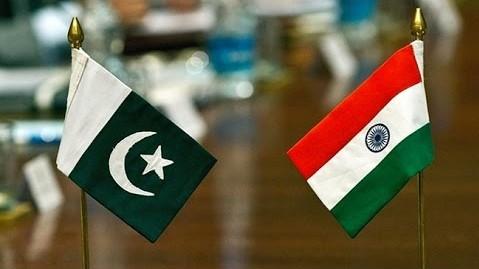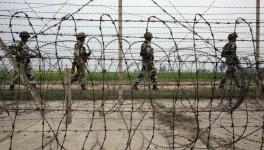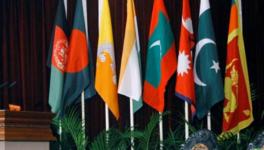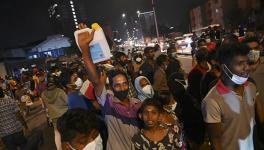India & Pakistan: The Price of Big Power Backing

Since there is an elite consensus in India that the country faces its biggest threat from Pakistan, one-fifth its size and one-seventh in terms of economic and military power, anything which can harm Pakistan is music to ears of the elite. The dogmatic pursuit of this approach, of course, also enables the Indian elite to absolve themselves of any responsibility for creating conditions that allowed Pakistan to ‘fish in troubled waters’. On the other side, this enables in whipping up jingoistic fervour to a pitch where voice of reason cannot penetrate. Yet every policymaker knows that there’s always a price tag attached to a course adopted.
In any case, there are no free lunches where big power politics is concerned. If a country expects big powers for help, there is always something to be paid in return. Thus, seeking favour from a big power is fraught with risks and all the pros and cons have to be factored in. A strategic analyst in a recent article in Centre for Land and Warfare Studies, wrote:
“Despite the unflinching support, India in its assessment, cannot negate factoring-in intentions of the nations who supported its cause. A plausible question… is, whether the support was out of their genuine concern or they had vested interests for which they would now turn back to demand favours in return. France has heavy stakes in the Rafale deal which is underway; US is already demanding that India stops buying oil from Iran which contributes around 10% to India’s oil imports and UK has high stakes in its strong trade and diaspora bonding with India. Above all, the ever-growing Indian thirst for arms import cannot be underestimated for the resolute support rendered by these nations….”
If to get just one person listed as a “global terrorist” resulted in India giving in to US pressure to cut off its oil trade link with Iran and scale down other inter-linkages, what is it that US and others expect from getting Pakistan “black-listed” by FATF (Financial Action Task Force)?
Listing a person as a “global terrorist” was a symbolic act. However, it is getting Pakistan “black-listed” by the 36 -member FATF committee that matters more to Indian diplomats. Raveesh Kumar, spokesperson of the Ministry of External Affairs, said Pakistan has to “demonstrate effective implementation of targeted financial sanctions against all 1267 & 1373 designated terrorists and those acting for or on their behalf, including preventing the raising and moving of funds....”
As part of this effort to get Pakistan black-listed, India is preparing for the FATF meeting in Orlando (Florida, US) from June 16-21, which will set the stage for the FATF plenary due on October 18-23 in France. Currently, Pakistan is on the “grey list” where it was placed in June 2018 for failing to live up to its commitments and doing precious little to clamp down on outfits declared as “global terrorist”.
For Pakistan to get itself removed from the “grey list”, it requires to muster 15-16 votes in the 36-member (plus two regional organisations). Whereas to avoid getting “black-listed”, it requires votes of minimum three members. The latter is not an impossible ask.
At a recent meeting in Beijing of the Asia-Pacific Group, (one of the two FATF member regional organisation) Pakistan faced tough questions from the members. They were asked regarding steps taken against currency smuggling, curbs on proscribed organisations, tightening of financial systems and operational effectiveness of various measures taken by the Pakistan government. They were asked about arrests of key operatives of these banned groups and blocking of their accounts and financial flows. Whether they managed to satisfy them or not, Pakistan is seriously concerned over FATF listing and is desperate to get off the “grey list” because its economy is in crisis and they desperately need to raise $12 billion, whereas they have managed to raise half the required amount. So, by all accounts, Pakistan’s economy is poised precariously.
Thus, unlike a person getting listed as a “global terrorist”, to get a country like Pakistan black-listed means more or less completely running down Pakistan’s economy. This is a big step. The bigger the issue, the larger the favour to be returned to big powers.
If anyone is entertaining any illusion on this count, then it’s time to consider that currently India is under US pressure to reduce import duty on telecom equipment, including mobile phones and smartwatches. And India has shown its willingness to accept duty cuts. Of course, in accordance with World Trade Organisation rules, such duty cuts would benefit other suppliers too. But India is also showing willingness to change/modify e-commerce rules, reported Business Standard on May 9, 2019. And recently when US Commerce Secretary visited India, he was unabashedly blunt in his criticism of India’s duty regime on US goods, and India’s intellectual property rights regime. So, the stakes have risen for India.
Which way will the new government turn? Will it be willing to do anything to get Pakistan “black-listed” unmindful of the cost, as was done to get just one person listed as a “global terrorist” in exchange for foregoing Iranian oil? Or, will they stop short because the price for getting a country “black-listed” by FATF is far higher. Will better sense prevail? That is the billion-dollar question, because the favour returned will have to be counted in billions.
Get the latest reports & analysis with people's perspective on Protests, movements & deep analytical videos, discussions of the current affairs in your Telegram app. Subscribe to NewsClick's Telegram channel & get Real-Time updates on stories, as they get published on our website.























